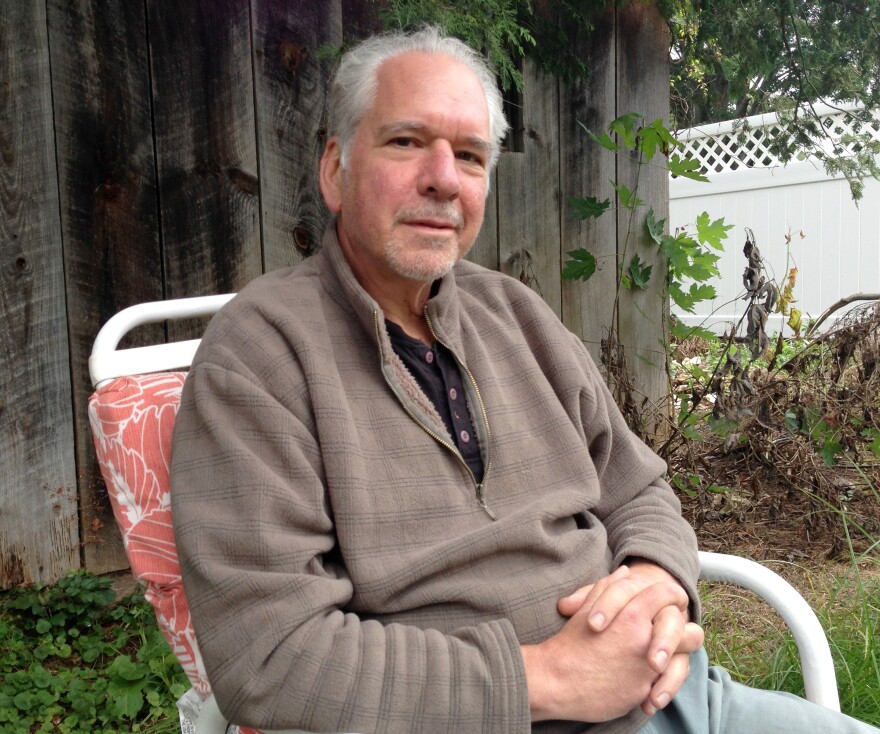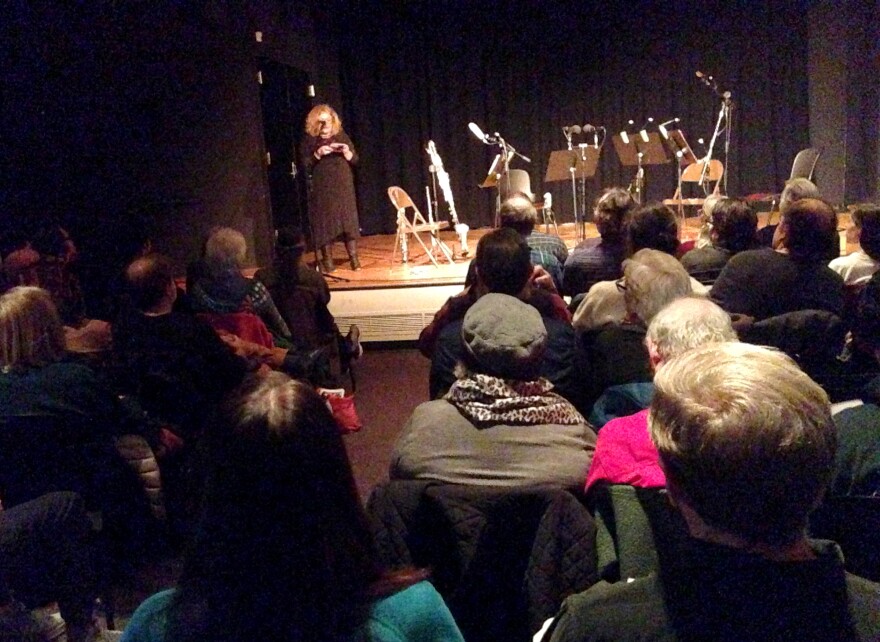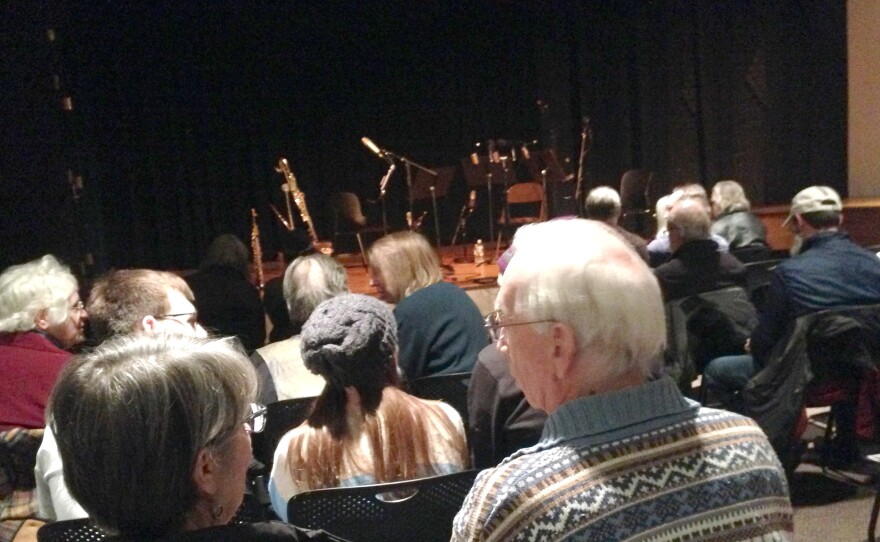Nearly seven years ago, jazz concert producer Glenn Siegel found he was saying “no” more than he wanted to say “yes.” He said that’s because more great musicians wanted to perform in the Pioneer Valley than there were venues. So he hatched an idea.
“It dawned on me that we could produce the music in the same way CSAs produce [farm] produce,” he said.
CSAs are community-supported farms. If it could work for carrots, maybe it could work for cutting-edge jazz.
So Siegel created Pioneer Valley Jazz Shares. About 95 members now pay $125 for 10 locally produced concerts a year. Jazz Shares also depends on business sponsors and single-ticket sales. The artists’ fees are modest.
It’s a do-it-yourself operation. Siegel and Jazz Shares co-founder Priscilla Page cook meals for musicians. Shareholders give them rides to the train station.
The concerts are held at venues throughout the valley, including Goshen, Holyoke, Turners Falls, Springfield, Greenfield and Easthampton.


https://www.youtube.com/watch?v=mmreaZvcVo8
The concept is similar to a subscription series, but Siegel said it’s more dependent on upfront money than venues like the UMass Fine Arts Center or the Bushnell in Hartford. That may be because the music isn’t always something you can snap your fingers to.
“To me, jazz is an evolving art,” Siegel said. “There's nothing more boring than to just recreate the music that came before. Where would we be if Charlie Parker had that attitude, or Louis Armstrong? They all created something that didn’t exist before. So jazz depends on that to grow.”
The concerts include music that references jazz of the 1940s, the avant-garde of the 1960s and musical traditions from around the world. Some call it “free improvised,” or “creative music.”
Siegel said the artists don’t always like to box themselves in with one name.
“It’s just music to them,” he said. “The categories and boundaries are meaningless, but hurtful in a commercial way. Being called an avant-garde jazz musician is a death knell to the pocketbook. It does not bring people out. It scares people away.”
https://www.youtube.com/watch?v=NSPXKcnjufs
Whatever you call it, Jazz Shares is packing people in, like at a recent concert by Duende Winds at Hampshire College in Amherst, Massachusetts. The quartet included a bassoonist — not your typical jazz instrument.
“I think it’s important to have all kinds of music, because we are all kinds of people,” said cellist Tomeka Reid. “Overall, it’s like we need to be more open — because people are different, and we should be celebrating those differences.”
Flutist and composer Nicole Mitchell said music that makes us uncomfortable can help us discover things.
“Even though we want to walk away from that — we want to run away from that — that’s actually a moment of possible transformation,” Mitchell said. “And if we never actually walk through it, we don’t get the jewels of it.”
In the audience at Hampshire was saxophonist and composer Jason Robinson, chair of the Amherst College music department. He performed last September in a Jazz Shares concert as part of the trio Decades. He said the series brings music to the valley that wouldn’t necessarily be here.

“It wouldn’t necessarily be many places,” Robinson said. “In fact, Jazz Shares does special things for our local community that [don’t] exist in Boston. It barely exists in New York. It’s something that’s quite unique across the country.”
Robinson said Jazz Shares gives musicians free range to explore their art. And he said that can build community.
“It doesn’t always work,” he said. “And I think the more openly you are improvising, the more risk there is for it to not work. It gets harder and more special when you have this transcendent kind of experience together.”
https://www.youtube.com/watch?v=QM7mBpyfDAs
That experience together continues after concerts over food.
Maria de la Vega brought a Cuban dessert called “pastel de la guava” — guava pie — to share. She is an aide in the Northampton schools, and thinks of these concerts as her jazz education.
“Sometimes it’s like this, and sometimes it’s more traditional jazz. And sometimes it’s even more out there than this was tonight!” de la Vega quipped.
Barbara Vandenberg, another shareholder, agreed it’s always different.
“A couple of concerts ago, oh my gosh, we were sitting in the front row, and we thought, ‘Can we get out of here?’ You know?” she said, laughing. “But I would say nine out of 10 times, it’s just fabulous."
The music does elicit strong reactions. Just ask Siegel.
“I tear up at concerts at certain moments,” he said. “I can feel my heart palpitate at other moments, with excitement. I’m laughing at the sounds musicians sometimes produce. I’m elbowing my friend next to me, like, ‘Did you hear that?’”
Helping more people hear that, is what this community of music lovers is all about.









